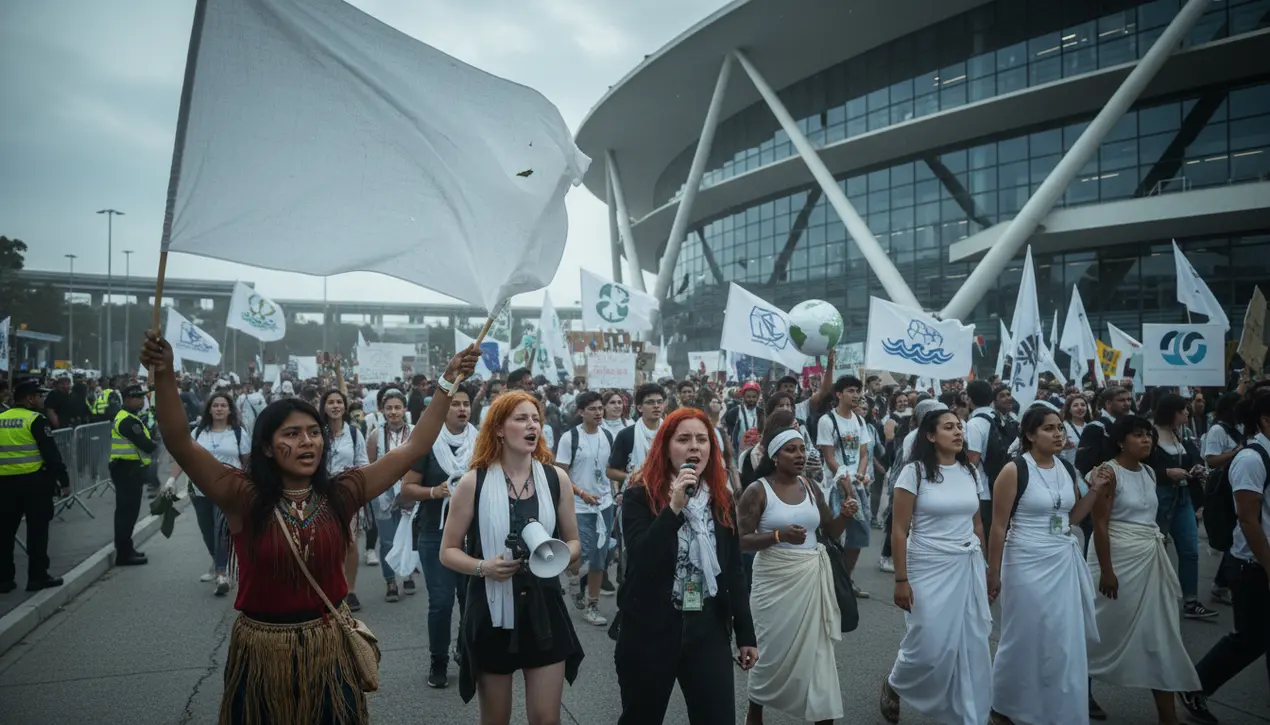
Politicsprotests & movementsClimate Activism
Thousands protest for climate action at COP30 summit.
RA
Rachel Adams
2 hours ago7 min read1 comments
For the first time since the muted, pandemic-shadowed climate talks of 2021, the raw, unfiltered voice of the people has breached the heavily fortified perimeter of diplomatic negotiation, as thousands of protesters descended upon the COP30 summit, transforming its sterile environs into a vibrant, chanting tableau of global anxiety and demand. This is not merely a permitted demonstration; it is a profound ecological fever breaking, a visceral release of pressure built up over three years of escalating heatwaves, catastrophic flooding, and scientific reports whose grim forecasts have moved from the abstract to the terrifyingly immediate.The protesters, a mosaic of indigenous leaders from the Amazon whose ancestral knowledge is a living library of biodiversity, youth activists from Europe who have known only a warming world, and frontline community members from sinking Pacific islands, carry with them not just placards, but the collective weight of a planet in distress. Their presence is a stark, living counter-narrative to the often glacial pace of closed-door talks, where the language of 'loss and damage' funds and 'net-zero by 2050' can feel detached from the acidifying oceans and burning forests they are meant to save.One cannot help but recall the pivotal, and ultimately insufficient, pledges of COP21 in Paris, a moment of historic optimism that now seems a lifetime ago, its goals rapidly receding into the realm of fantasy without radical, immediate action. The very fact that protest was forbidden for so long speaks volumes about the delicate political ecosystem of these summits, where nations often seek to manage optics over outcomes.Allowing the demonstrations now may signal a belated recognition by host nations and the UN Framework Convention on Climate Change that the legitimacy of the entire process hinges on its transparency and connection to civil society. Yet, the critical question remains: will the powerful imagery of this mobilization translate into tangible policy shifts inside the negotiating rooms? Or will it become merely another piece of theater, acknowledged in press briefings but ignored in the final, watered-down text? The stakes could not be higher; we are no longer debating future scenarios but responding to a present-day emergency, where every fraction of a degree of warming locks in further irreversible damage to the complex, interconnected systems that sustain life on Earth. The protesters at COP30 are the embodied conscience of the world, a necessary and urgent reminder that the graphs and data points discussed by delegates represent real lives, vanishing species, and the very habitability of our shared home.
#COP30
#climate protest
#environmental activism
#featured
#global summit
#policy action
Stay Informed. Act Smarter.
Get weekly highlights, major headlines, and expert insights — then put your knowledge to work in our live prediction markets.
Comments
Loading comments...
© 2025 Outpoll Service LTD. All rights reserved.